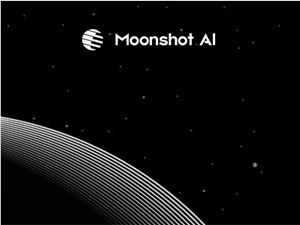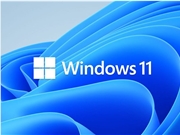Artificial intelligence's open-source innovation has reached another milestone! Developed by the CAMEL-AI team, the OWL project recently announced the open-sourcing of a new multi-agent collaboration tool called Eigent. This tool is built on the OWL framework and aims to achieve more efficient and professional complex task processing through multi-agent collaboration. It marks another significant breakthrough in the open-source AI ecosystem in the field of task automation.
Eigent: A Revolutionary Multi-Agent Collaboration Tool
Eigent is another major achievement from the OWL team following CAMEL and OWL. It is developed based on the open-source projects CAMEL (with 13k GitHub stars) and OWL (with 17k GitHub stars). Unlike traditional single-agent systems that execute sub-tasks sequentially, Eigent significantly improves task processing efficiency by enabling multi-agent collaboration. Its core design philosophy involves breaking down complex tasks into multiple sub-tasks, which are then processed in parallel by different agents. Each agent calls specific tools according to the task requirements, showcasing clear task division and execution processes.

According to AIbase, Eigent can integrate various tools and data sources to generate more professional and comprehensive content. For example, when generating reports, Eigent can not only obtain real-time data from the web but also use multimodal processing to analyze documents, images, and videos, producing structured high-quality results. This capability makes it perform exceptionally well in scenarios such as market analysis and report generation, demonstrating the great potential of multi-agent systems.
A Strong Promoter of the Open-Source Ecosystem
The open-source release of Eigent further solidifies the OWL team's leading position in the AI open-source community. As a 100% open-source tool, Eigent allows developers to freely inspect the code, contribute features, or customize it according to their needs. AIbase noted that the GitHub page of Eigent provides detailed documentation and example code, making it easy for developers to get started quickly. This openness not only lowers the barrier to entry but also attracts global attention, promoting the community-driven development of multi-agent collaboration technology.
At the same time, Eigent continues the outstanding performance of OWL in the GAIA benchmark test. OWL once ranked first among open-source frameworks with an average score of 58.18, and Eigent further optimizes the efficiency and stability of multi-agent collaboration on this basis. AIbase believes that Eigent's release is a strong response to proprietary systems such as Manus AI, demonstrating the dual advantages of open-source AI in terms of performance and accessibility.
Technical Highlights: Clear Task Decomposition and Efficient Execution
Eigent's core advantage lies in its clear task decomposition and execution mechanism. According to technical documentation, AIbase learned that Eigent uses the collaboration between planning agents (Planner) and execution agents (Worker) to break down tasks into executable sub-steps. For example, when handling a market research task, one agent might be responsible for collecting competitor data through browser automation, another could parse financial reports, and a third would integrate information to generate an analysis report. This modular design not only improves efficiency but also enhances system scalability.
In addition, Eigent supports multiple mainstream large language models, such as GPT-4o, Claude3.5, and DeepSeek, and is compatible with both local deployment and cloud operation, meeting the needs of different users. Its built-in MCP (Model Context Protocol) toolkit further standardizes interactions between agents, ensuring stable execution of complex tasks.
The release of Eigent has sparked热烈 reactions in the AI community. AIbase observed that the open-source community highly praised Eigent's ease of use and powerful features, especially its application potential in areas such as academic research, data analysis, and automated testing. Developers are actively exploring the application of Eigent in more scenarios, such as automatic code generation, real-time information retrieval, and multimodal content processing.
Looking ahead, AIbase expects Eigent to continue improving its toolkits and enhancing agent collaboration in the open-source community, while promoting the application of AI in broader fields. The OWL team stated that they will also open up more training datasets and model checkpoints to provide developers with richer resources.
The open-source release of Eigent marks a new height in multi-agent collaboration technology. As an important component of the CAMEL-AI ecosystem, Eigent offers endless possibilities for developers with its efficient task processing capabilities and open community-driven model. AIbase will continue to track the latest developments of Eigent and bring you more cutting-edge AI news.
GitHub Address: https://github.com/eigent-ai/eigent
Download Trial Link: https://eigent.ai
Product Documentation: https://docs.eigent.ai










